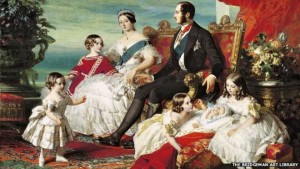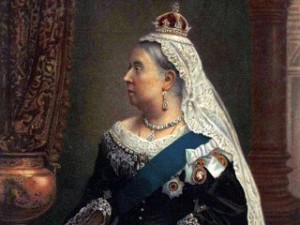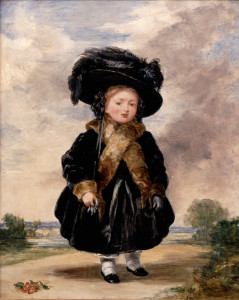
As a Valentine’s day special, we will take a step back and decide whether Royalty’s greatest love story was really the great romance many of us have always believed it to be…
Studying Royal History is never boring, but it can be intense. Brother against brother, father killing son, wife betraying husband and cousin rising up against cousin. Sometimes, you need a bit of light relief.
For me, it was always the love story of Victoria and Albert that gave me that a-plenty. Two young adults who, however dynastically convenient, fell head over heels in love. In the innocent throws of passion that followed, they created an idyllic set of children that would serve as a timeless model of exactly what a Royal family should look like.
Such tales don’t just make easy reading; if the modern reader is able to overlook the fact that the two lovers were first-cousins, it is essentially a tale of romance that we can all either relate or aspire to.
But lately, as I’ve been conducting some – albeit fairly light – research around the ‘happy couple,’ I’ve noticed that there’s now a narrative circulating that perhaps all was not as it seemed. This is something I don’t remember coming across as a teenager, but certainly seems to have been doing the rounds in recent years.
Don’t get me wrong, very little that I read suggests that the conventional view is dead in the water, but there is a sense that the young Coburgs were not the love story we have been led to believe. Were much of Victoria’s later platitudes to Albert a product of guilt? Were they both really the victims of an arranged marriage? Was it the case that plain Victoria felt a hormonal passion for her striking new husband, but he was more disappointed in his plump, immature and unintelligent bride?
Having decided to #DigALittleDeeper I have concluded that the following observations certainly seem fair:
- Victoria and Albert’s match was certainly one arranged (or strongly, strongly encouraged) by their family. Their uncle Leopold, had once been in prime position to become Prince Consort of Britain; it was almost certainly his belief that this ambition should be fulfilled by the next generation of his kin.
- After Albert’s death it does seem the case that Victoria looked back at their marriage through rose-tinted spectacles. Contemporary letters and other sources suggest their marriage could be quite tempestuous and a strain on both parties.
- It does seem that whatever Victoria’s pleasures, Albert experienced a degree of melancholy in the marriage, particularly in the early years.
However, is any of this really enough to take away from the more romantic tales that have come down to us? Yes, their marriage was somewhat ‘arranged,’ but this would always be the case for the woman ruling the most powerful Kingdom in Europe. It should be noted that some of the other potential matches for her were more favourable to other stakeholders, including the UK government. Victoria and Albert’s personal chemistry was part of what made the match achievable.
It is almost inevitable that following Albert’s untimely death, Victoria would always remember her marriage with more romance than accuracy, but that doesn’t mean she rewrote history. Were there elements of guilt for the times that she didn’t think herself a good wife? Probably, but that’s hardly untypical in situations of grief. While evidence does suggest that there were many tempestuous moments in their marriage, perhaps in a marriage dominated by passion, this shouldn’t surprise us.
As for what was going on in Albert’s head and indeed, his heart, we can of course never truly know. If indeed his passion did not match that of his wife’s, we would be wise not to draw too much from that. Victoria was in her own country, her own surroundings and occupied an established role in society. Not only did Albert not have the security of a well-worn constitutional role, he also had to adapt to leaving all his friends, family and the country he had grown up in. If he was battling with aspects of mild depression from time to time, it does not make sense to attribute that to how he felt about his marriage.
Besides, there is evidence that suggests his marriage to Victoria was something that excited him on every level. The love letters he sent to his future bride, testify to a man excited about forthcoming nuptials and everything that this would entail. Throughout the 1840s, Victoria was rarely free from pregnancy. True, they both felt a duty to create a new and idyllic Royal family after the scandals of the Hanoverian years, but it’s difficult to think that this scale of reproduction was the product of duty alone.
As with so many things, this is something I would like to research further. Based on what I can see so far, I won’t be abandoning the romantic notions of this Royal coupling that I have found so comforting over the years. For once, this is a tale of romance that is rooted in reality.



